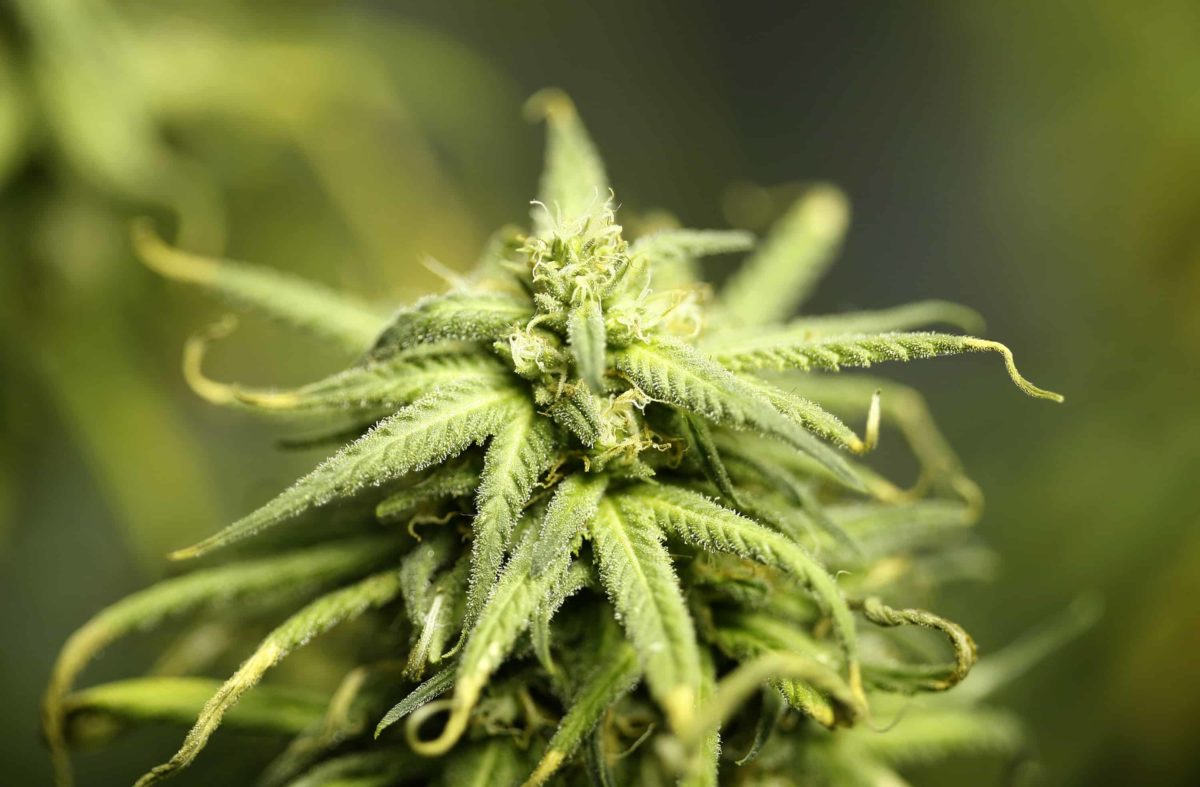Mateo Amador, a seven-year-old Costa Rican boy with cerebral palsy, suffered daily epileptic episodes until he started consuming cannabis oil, says his father, who manufactures his medicines while waiting for Congress to approve the legalization of medical cannabis.
“At a year and a half, he was medicated with clonazepam and sodium valproate, both addictive. It was hard to watch him, completely high for hours at a time. Now he takes nothing and has no seizures. The change has been wonderful,” says Isaac Amador, affectionately caressing his son’s head in his wheelchair.
Mateo has been seizure-free for five years now, according to Isaac, thanks to the cannabis oil drops he receives, which he can only obtain illegally. He adds that his son no longer consumed the drugs that, “in addition to knocking him out, damaged his kidneys.”
“He even improved his assertiveness and spasticity [muscle tension],” adds the father.
Francisco Fonseca, 29, also has neurological disabilities and epilepsy. His family has been giving him CBD drops (cannabidiol, another cannabis derivative) for three years, and since then, according to his brother Andrés, his life has improved.
Andres buys the drops from “a clandestine supplier,” as do 3,500 other people, according to estimates by activists in the country.
Long wait
A bill allowing the cultivation, production, industrialization and commercialization of hemp (non-psychoactive cannabis) and cannabis for medicinal use was introduced in Costa Rica’s Legislative Assembly in 2019, and two months ago received the first of the two approvals it requires to become law.
But 10 of 57 deputies judicially stopped the second vote because the bill must adhere “to the international conventions and treaties that Costa Rica has signed against drug trafficking,” explained legislator Mileidy Alvarado at the time.
A month later, the Constitutional Chamber declared the appeal inadmissible, but the second vote has not yet taken place because the president of the country, Carlos Alvarado, who has been in favor of the project, did not include it among the priorities to be discussed before the end of the year.
Discovery
Isaac, a 46-year-old metal worker, says that his son Mateo’s first approach to the cannabis plant was a tea with oil extracted from the root.
A pulmonary crisis forced Mateo to spend 10 days in the hospital and there he decided to find an alternative.
Together with his wife, they tracked down organizations in Argentina and Chile, two countries where the commercialization of medical cannabis is legal, as well as in Panama, Colombia, Mexico and Uruguay.
Its efficacy for some ailments is recognized by the World Health Organization (WHO).
“That’s where we discovered this world,” says Isaac, who five years later is growing plants in his attic to obtain the medicines with which he claims to help not only his son, but also other families with children like Mateo, to whom he gives his production as a gift.
“I’ve never had a legal problem, but I have had a problem with people who don’t understand and judge: ‘Why are you giving your son marijuana?’ (…). Of course, at first I was worried that he would be ‘high’ [doped], but with the information we knew it wouldn’t happen,” he adds.
This stance against medical cannabis is echoed by experts in Costa Rica, such as psychiatrist Luis Carlos Sancho. “It is all very anecdotal, but it has not been adequately proven that marijuana has medicinal purposes. (…). It is not known what side effects or contraindications it has,” he says.
“This could be a gateway for later approval of recreational use. There is research on patients with depression, psychotic conditions, anxiety and panic disorders,” he adds.
Specialization
Isaac says that the impact on Mateo’s professionals was positive.
“We told the neurologist, therapists, psychopedagogist, teachers…. They were all receptive. And over the years I have met doctors who specialized” in medical cannabis, he says.
Carlos Hernández, a general practitioner, identifies himself as an expert in cannabis therapies and says that with derivatives of the plant he has treated epilepsy, fibromyalgia, asthma and chronic pain. He also uses them for palliative treatments against some cancers.
According to Hernández, the legalization of its use “can be incredible for the country’s economy” but “the most important thing will be health, since many will be able to experience positive changes”.
According to the state-owned Foreign Trade Promotion Agency (Procomer), if the law is approved, Costa Rica would have access to a world market that, by 2025, would be worth US$35 billion a year.
by David GOLDBERG






